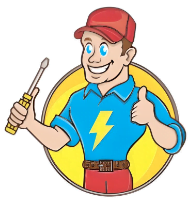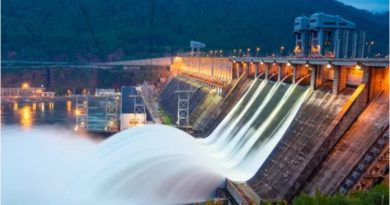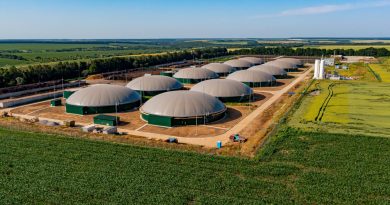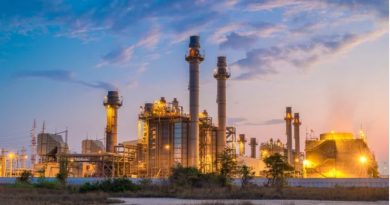Diesel Power Generation Plant – Construction, Working, Types, Advantages, Disadvantages and Applications
What is a Diesel Power Generation Plant? Construction, Working, Types, Advantages, Disadvantages and Applications
Introduction
Diesel power generator sets are among the most reliable and cost-effective distributed power sources extensively used worldwide. Diesel gen-sets produce electricity by diesel engine-driven alternators for off-grid, backup, and prime needs. Let’s learn what diesel power generation involves, diesel generator components, working principles, types, installation, benefits, limitations, and major applications.
Diesel power generation is a versatile and widely used method of producing electricity using diesel engines. This comprehensive guide explores the world of diesel power plants, covering their principles, advantages, disadvantages, construction, working, types, applications, challenges, and future trends.
What is Diesel Power Generation?
Diesel power generation refers to producing electrical energy using diesel engine generator sets. A diesel generator or genset has a diesel engine coupled to an electrical generator assembled together on a joint-enclosed skid base or housing.
A diesel engine’s rotational mechanical power is converted into electrical energy by the alternator or generator driven by the motor. Diesel gensets offer reliable and customizable power solutions.
Principles of Diesel Power Generation
Diesel power generation relies on the combustion of diesel fuel in engines to generate mechanical energy, which is then converted into electricity.
Diesel Engine Basics
Diesel engines are internal combustion engines using compressed air heat to ignite injected diesel fuel. They provide higher efficiency and low operating costs, suitable for heavy-duty uses. Diesel gensets utilize such engines’ mechanical rotation for power generation.
Diesel Generator Set
The package assembly of a diesel engine, alternator, fuel tank, control panel, base frame, etc., is termed a diesel generator set or diesel genset. Gensets provide easy power generation at locations lacking electric supply access.
Now, let’s examine the key components of a diesel generator set.
Components of Diesel Genset
Diesel Engine
Four-stroke medium or high-speed diesel engines that provide rotational mechanical power to alternators are used based on power needs.
Alternator
Consists of a rotating field and fixed armature windings. Converting mechanical energy into electrical energy. Voltage regulation is built.
Fuel System
It consists of tanks, filters, pumps, etc., to feed diesel to engine injectors. Sized for runtime needs between refills.
Cooling System
It uses a radiator, fan, and coolant circulation to dissipate engine heat and maintain optimal temperature.
Exhaust System
Silencers, catalytic converters, etc., to reduce noise and emissions in exhaust gases ejected at high temperatures.
Control Panel
Houses engine and alternator controls, instrumentation, shutdowns, distribution breakers, synchronizing, etc.
Enclosure and Base Frame
Provides weather and soundproofing. Anti-vibration pads isolate vibrations. An integrated skid base offers portability.
Let’s understand how these components enable a diesel generator to produce electricity.
Working of Diesel Generator
Diesel Combustion
Diesel is injected into a cylinder and ignited by compressed air heat. Combustion produces very high pressures that drive the piston down.
Mechanical Power
Reciprocating motions of multiple pistons are converted into rotational power via connecting rods and crankshaft coupled to the alternator.
Alternator Working
The alternator uses Faraday’s law to produce AC electricity when its rotor spins within the stator’s magnetic field due to crankshaft rotation.
Voltage Regulation
Engine speed governs alternator rotation. Voltage is regulated by an automatic voltage regulator that alters field excitation.
Different configurations of diesel engines are used based on application needs.
Diesel Engine Types
Two-stroke Engine
Each piston completes one power cycle in one crankshaft rotation. Faster power stroke and compactness but lower fuel efficiency.
Four-stroke Engine
The piston completes a power cycle in two crankshaft rotations. It is more common due to higher fuel efficiency.
Single-acting and Double-acting
In single-acting, power stroke occurs only on one side of the piston. In double-acting, it occurs on both sides for added power.
Open Skid-Mounted Diesel Generators
Open skid-mounted generators are portable and commonly used for backup power.
Containerized Diesel Generators
Containerized generators are designed for easy transport and installation and are suitable for various applications.
Diesel Power Plants for Prime Power
Prime power diesel generators are used as the primary source of electricity in areas with unreliable grid power.
Proper installation is vital to diesel generator effectiveness and longevity.
Diesel Genset Installation
Site Selection
Diesel gensets are installed at ground level on flat, dry, firm foundations with adequate access and load balancing.
Mounting and Anchoring
Gensets are anchored using anti-vibration pads. All connections must be flexible.
Fuel Storage and Piping
Onsite diesel storage tanks are installed with proper fuel piping, vents, fills, leak containment, etc.
Exhaust Piping
Exhaust piping requires proper sizing, insulation, rain caps, and directing away from air intakes.
Electrical Connections
Cables must be adequately sized. Proper grounding, distribution panels, and load connections are ensured.
Diesel gen sets offer multiple advantages:
Advantages of Diesel Generators
- Proven and mature technology providing highly reliable power
- Low operating costs and affordable maintenance
- Long working life spans over 40000 hours with proper maintenance
- Compact packaged units available in wide size range
- Fuel flexibility to use diesel, biofuels, natural gas, propane, etc.
- Black start capability aids restoration after outages
- Islanding enabled self-sufficient operation when the grid fails
Flexibility and Portability
Diesel generators offer flexibility and portability, making them suitable for both stationary and mobile power generation needs.
High Efficiency
Diesel engines are known for their high thermal efficiency, making them a cost-effective choice for electricity production.
Quick Start and Response
Diesel generators can start quickly and respond rapidly to changes in electrical load, ensuring a reliable power supply.
However, diesel gen-sets also have some limitations:
Disadvantages of Diesel Generators
- High noise and exhaust emissions, though reduced with technology
- Requires safety measures for onsite fuel storage and handling
- It needs regular maintenance and oil changes
- Output power decreases as altitude increases
- Longer startup and loading times compared to gas turbines
- Not suitable for small, intermittent, frequent cyclic loads
Pollution and Emissions
The combustion of diesel fuel generates air pollutants and greenhouse gas emissions, posing environmental challenges.
Fuel Dependency
Diesel power generation relies on a consistent supply of diesel fuel, making it vulnerable to fuel price fluctuations.
Maintenance Costs
Maintaining diesel generators can be expensive, requiring regular servicing and replacement of components.
Diesel generator sets serve many power needs through various applications.
Diesel Genset Applications
Emergency Power Backup
When grid supply fails, diesel gen-sets provide backup power to hospitals, data centers, industries, etc..
Standby Power
For standby needs at peak load times or during maintenance of the main power supply.
Peak Shaving
Reduces peak load grid power demand charges by supplying loads during high tariff periods.
Prime Power
Continuous power generation where grid access is unavailable. Widely used in rural areas.
Distributed Power
Diesel generators also feed local mini and microgrid networks as distributed generation sources.
Remote and Off-Grid Areas
Diesel power is essential in remote and off-grid locations where access to the electrical grid is limited.
Construction and Mining Industries
Diesel power plants play a vital role in providing energy for construction sites and mining operations.
Comparison with Other Generator Types
- Diesel gensets are more compact, portable, and affordable than gas turbine generators.
- Diesel offers higher reliability and autonomy than renewable energy generators.
- Diesel generators provide steadier voltage and frequency control compared to inverter generators.
- Diesel gensets have lower operating costs than gasoline generators.
Challenges and Future Trends
Emissions Control Technologies
Advancements in emissions control technologies aim to reduce the environmental impact of diesel power generation.
Integration with Renewable Energy
Integrating diesel generators with renewable energy sources offers a more sustainable energy solution.
Hybrid Diesel-Renewable Systems
Hybrid systems combining diesel power with renewables are becoming increasingly popular for improved efficiency.
Conclusion
Diesel power generation is crucial to our energy landscape, providing reliable electricity for various applications. While it has advantages and disadvantages, ongoing innovations aim to make diesel power more efficient and environmentally friendly.
Summary
Diesel generator sets produce onsite electricity when and where necessary using well-proven and reliable technology. Diesel engine-driven alternators convert chemical energy in diesel to mechanical then electrical form efficiently. Diesel gensets find wide applications for emergency, standby, and prime power needs.
Though diesel power offers low operating costs and high availability, improving sustainability through emissions control, alternative fuels, and hybridization with renewable energy is essential for broader acceptance. Advancing diesel generator technology combined with the rising adoption of renewable energy sources promises to meet our diversified electricity needs.
Frequently Asked Questions (FAQs)
- What is diesel power generation, and how does it work?
- Diesel power generation utilizes diesel engines to convert fuel into mechanical energy, which is then transformed into electricity.
- What are the main advantages of diesel power generation?
- Advantages include flexibility, high efficiency, and quick start and response capabilities.
- What are the primary disadvantages of diesel power generation?
- Disadvantages include pollution and emissions, fuel dependency, and maintenance costs.
- Where is diesel power generation commonly applied?
- Diesel power is commonly used for emergency backup in remote areas and in industries like construction and mining.
- How do the construction and working of diesel power plants take place?
- Diesel engines and generator sets are essential components, with the engine converting fuel into mechanical energy and generating electricity.
- What are the different types of diesel power plants?
- Types include open skid-mounted diesel generators, containerized generators, and power plants for prime power.
- What challenges does diesel power generation face in the future?
- Challenges include emissions control, renewable energy integration, and hybrid diesel-renewable systems.
- Is diesel power generation environmentally friendly?
- Due to emissions, diesel power generation can be environmentally challenging, but advancements aim to reduce its impact.
- What is the future of diesel power generation?
- The future involves cleaner diesel technologies, integration with renewables, and hybrid systems for increased sustainability.
- How can diesel power contribute to a sustainable energy future?
- Diesel power can play a role in a sustainable future when combined with emission control technologies and integrated with renewable energy sources.
MCQs related to Diesel Generator Power Generation
- How does a diesel generator work?
A diesel engine provides rotational motion to spin an alternator to produce electricity based on Faraday’s law of induction.
- What are the main components of a diesel genset?
The major components are a diesel engine, alternator, fuel system, cooling system, exhaust system, control panel, and structural base frame.
- What are the different diesel engine types?
Common types are two-stroke and four-stroke engines. Engines can be single-acting or double-acting based on power stroke direction.
- What is the black start capability of diesel gensets?
Ability to start up and energize equipment without any external power input, enabling restoration after grid outages.
- Where are diesel generator sets used?
Typical applications include emergency power, standby supply, peak load shaving, prime/continuous power, and distributed generation.
- What size diesel generators are available?
Diesel gensets are available in a wide range from a few kW micro-CHP units for homes to giant MW scale gensets used in industries.
- What fuel options can diesel generators use?
Most commonly ultra-low sulfur diesel. Many engines can also use biodiesel, natural gas, propane, and other fuel alternatives.
- What are the advantages of diesel generators?
Benefits include high reliability, low operating costs, long working life, compact packaged units, and black start capability.
- What are the disadvantages of diesel generators?
Cons include noise and exhaust emissions, fuel storage safety needs, and performance issues at high altitudes and temperatures.
- How often is maintenance needed for diesel gensets?
Routine preventive maintenance like oil changes is needed every 200-400 hours. Major overhauls are required around 20,000-40,000 hours.





Diesel generates pollution